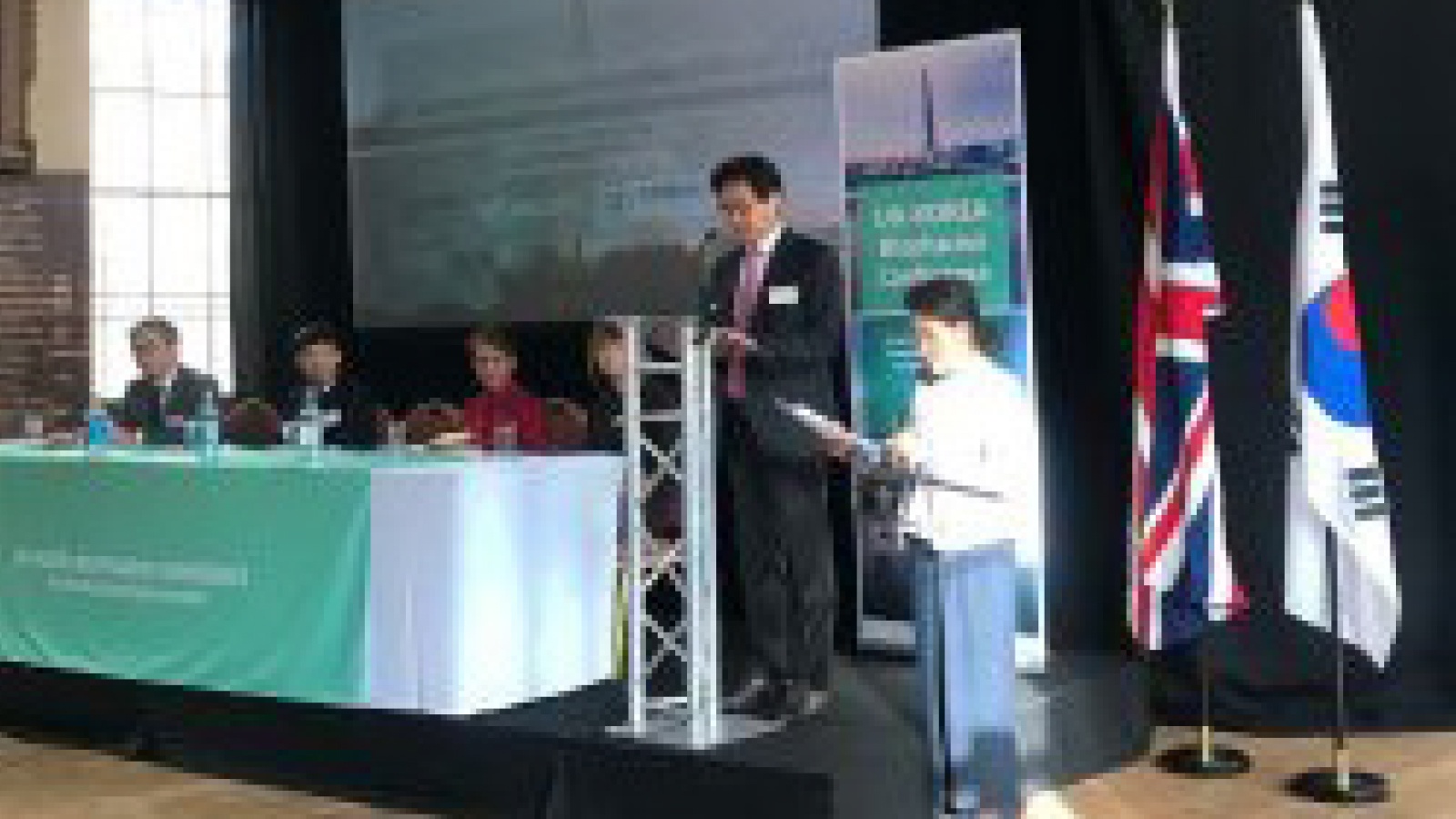
UK-Korea Biopharma Conference 2019
Taking place on 14 November 2019 at the historic Great Hall at St Bart’s Hospital, this event saw the largest ever Korean biopharma delegation visit the UK to discuss collaboration opportunities.
On 14 November MedCity hosted a major delegation from the Korean BioPharma sector, in collaboration with the Korean Pharmaceutical and Bio-Pharma Manufacturers Association, the Department of International Trade and St Bart’s Life Sciences. The event, focusing on Accelerating Global Open Innovation from Science to Commercialisation, was hosted at the beautiful Great Hall at St Bart’s Hospital in East London. As well as a packed agenda, the event also included the signing of an MoU between MedCity and KPBMA to promote continued collaboration between the UK and Korea.
Speakers included our partners from Imperial College London, Kings College London, University College London, Queen Mary’s College London as well as Bart’s NHS Trust, KPBMA, Korean Stock Exchange, NIHR, London Advanced Therapies, Korean VCs and both Korean and U.K. Biopharma companies.
Why is this important?
Connecting the scientific and research excellence of London and the Greater South East for the growth of the life sciences sector and improved patient outcomes is at the heart of what we do. International collaboration and foreign inward investment fuels this growth. The Korean Biopharma industry is advancing its global engagement from research to business innovation at pace and is actively seeking international collaboration opportunities. As well as providing real exciting possibilities for investment and collaboration, the Korean market acts as an excellent entry point to the North-East Asia market.
See below for some key take-away’s from the day about the potential of the market:
- Korean Biopharma developed the world’s first stem-cell therapy product
- Korea produce four of seven globally commercialised stem-cell therapy products
- The country is driving continued increase in R&D investment (9.1% of sales invested)
- More than 900 new drugs exist on the pipeline stage
- The Korean government is investing $4bn for innovative medicines to manage cancer, dementia and rare diseases
- Investing in global industry engagement is a major government priority